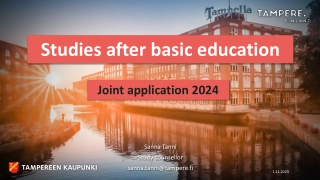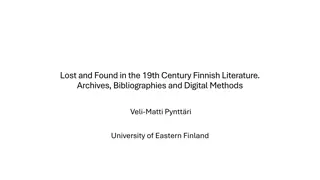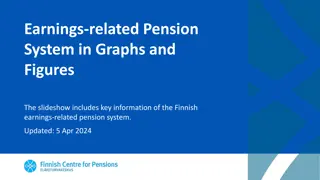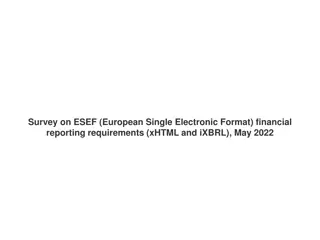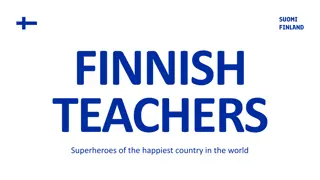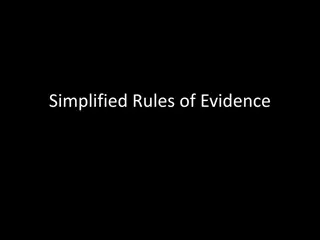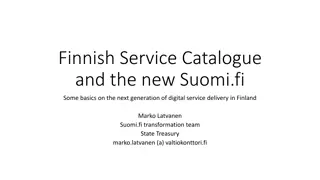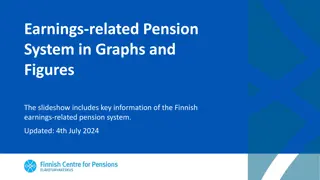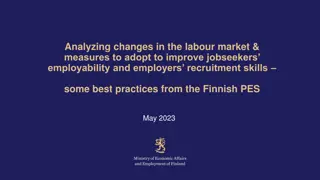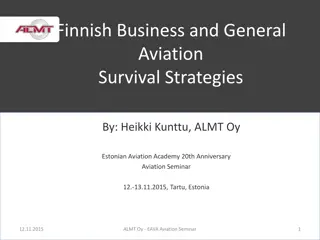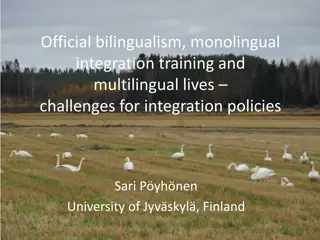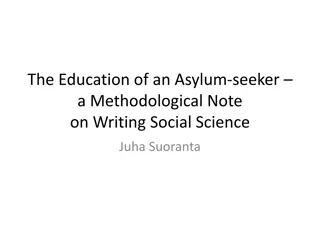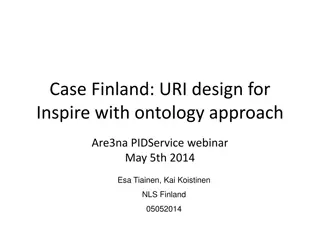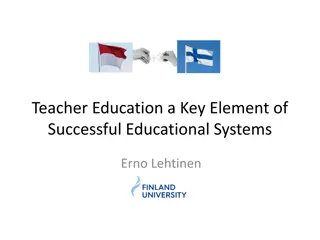Finnish Education in a Nutshell - Key Principles and Features
Finnish education system emphasizes equal opportunities, support for all students including those with special needs, local autonomy for schools and teachers, flexibility in upper secondary education, and vocational training in partnership with the world of work. Education is free, lifelong, and focused on maximizing individual potential.
Download Presentation

Please find below an Image/Link to download the presentation.
The content on the website is provided AS IS for your information and personal use only. It may not be sold, licensed, or shared on other websites without obtaining consent from the author.If you encounter any issues during the download, it is possible that the publisher has removed the file from their server.
You are allowed to download the files provided on this website for personal or commercial use, subject to the condition that they are used lawfully. All files are the property of their respective owners.
The content on the website is provided AS IS for your information and personal use only. It may not be sold, licensed, or shared on other websites without obtaining consent from the author.
E N D
Presentation Transcript
FINNISH EDUCATION IN A NUTSHELL
MAIN PRINCIPALS: Provide education to all children & equal opportunities Education is free at all levels Every pupil and student has the right to educational support Special needs education is generally provided in conjunction with mainstream education Efforts to support language minorities and migrants Life-long learning The potential of every individual should be maximised.
ALL FINNISH COMPREHENSIVE SCHOOLS: Most education is publicly funded Basic education is provided within a single structure School year is the same everywhere (but timetables are local) National core curriculum (which leaves room for local variations) No National tests for pupils in basic education
LOCAL & TEACHERS AUTONOMY Local administration and educational institutions play a key role Education system is based on trust and responsibility. Educational autonomy is high at all levels Quality assurance is based on steering instead of controlling Assessment is part of daily schoolwork
Early childhood and basic education as part of life-long learning Early childhood education supports children s development and learning
TO THE UPPER SECONDARY LEVEL Most students continue their studies after basic education to the vocational institutions or to the general upper secondary school General upper secondary education is flexibly organised is designed to last three years, but students may complete it in 2 to 4 years. Instruction is organised in modular form not tied to year classes and students can decide on their individual study schedules Based on the national core curriculum, each education provider then prepares the local curriculum. First national examination at the end: The National Matriculation examination
VOCATIONAL INSTITUTES in cooperation with the world of work covers eight fields of education, more than fifty vocational (social, commercial, technology, nature..) three years of study includes at least half a year of on-the- joblearning in workplaces


